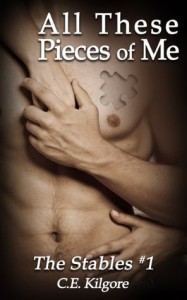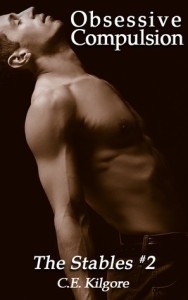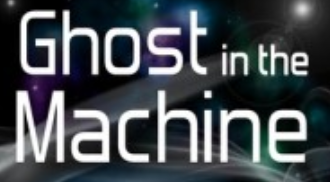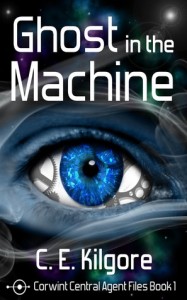I downloaded the first two books of C. E. Kilgore‘s The Stables series from the Amazon free list. At the time of posting, the first was still free. The series description is as such:
Set in Dallas, Texas, this is a Contemporary Romance series with BDSM elements and mature, atypical themes, including physical disfigurement, Autism, and OCD. Each book will be a complete story, no cliffhangers.
 Description from Goodreads:
Description from Goodreads:
Emma’s autism allows her to see the world inside out and right past the physical scars that Brandon had begun to think would be the only thing the world would ever see.
Review:
If I was going to use a star rating on this book I’d want to give it a 2, but would probably allow a 2.5. The reason is that the writing is fine and it’s probably even a fine book, conforming to genre standards etc. However, it pretty much pissed me off at every single turn!
I’m struggling to explain why without writing a 2,000 word ranty review. I’ll start with the autism aspect. No, first I’ll state for the record that I think Kilgore had a wonderful idea in writing a series involving non-normalized individuals. Incorporating mental health issues and physical abnormalities into main characters is a laudable goal. I only wish she had actually accomplished it.
Now I’ll address Emma’s autism. Not once in the entire book (other than the first sentence of the blurb) is the word autism used. Autistic is used twice. In this sentence: “The Fed’s brain-doctor thought she might be autistic, but they don’t really know for sure. Then again they label everyone autistic, thesedays.” That’s it for the entire book for autism. I don’t know about you, but I find it less than compelling.
Perhaps you’re thinking a diagnosis doesn’t need to be named to exist in a character. I might agree with that, except that Emma doesn’t seem to self-identify as autistic and she doesn’t display any behaviours that are particularly autistic. In fact, none of her thoughts, actions, or behaviours fall outside of the realm of standard, fragile, broken heroine in need of a man to set her world to rights.
More to the point, what Emma’s every description screams is the standard child-like heroine of 4 bazillion other contemporary romances. Even when being introduced into BDSM she’s clad as such:
Her curly hair has been pinned up into bouncing caramel ringlet pigtails and she’s dressed all in white. White leather. White. Fucking. Leather! A front-laced corset leads down into a pair of frilly bloomers, which then leads down into matching garter belts and white lace stockings. There are tiny, pink bows everywhere, including on the bands of her white Mary-Jane shoes. White leather bracers with lace frills and a matching collar complete the look, and in her hand is a thin, white riding crop.
It’s all angelic innocence and virginal naiveté, even in a BDSM club. As if the more child-like the heroine, the more appealing she is. Gah! Basically, everything I hate about contemporary romances in one place.
Plus, no one, not even the author, addressed the fact that this particular style is an adult version of what her mother used to dress her in to pimp her to older men as a child. (Or at least to attract older men into her embezzlement schemes.) Yes, lets accidentally sexualise her history abuse. Sounds like a great idea.
Instead of providing an empowered, sexual agent who happens to be on the autism spectrum we’re given a broken, abused, mentally unstable woman. It plays into the same tired record of female mental fragility that I hate with a vitriolic passion I’m not sure I can adequately express.
What the book feels like instead, is that the author did her market research to find what was trending at the moment and came across BDSM and autism. She then went through and painted autism onto the surface of a preexisting M/F erotic romance. (Kind of like what a lot of M/M romance authors do to sell M/F romances to M/M readers.) Because honestly, what the BDSM themes have to do with the autism theme is a complete mystery. I think the book would have been vastly improved by choosing one or the other and not both.
An author can call a character anything she likes and have it be true. They’re the author. But beyond Kilgore’s assertion that Emma is autistic, I don’t see it. What Emma is is an archetype of a child-sexpot and personally, I want to read about adult, fully integrated women in sexual roles.
The book also has insta-love, which I hate. Insta-trust, which baffles me (and kind of pisses me off, too). A group of five childhood friends who all grew up to have essentially the same sexual kinks (six if you count Crow), which mystifies me. The required lecture and training in BDSM, which bores me. The endless repetitive drivel about being awed and blown away, which irritates me. The cliché scene where the rich man takes the woman shopping for clothing, which makes me roll my eyes, and an ending so sappy I damn near choked on it, which frankly disgusts me.
So, that all makes this book a complete failure for me. However, to be fair, I did actually like the characters (including the side characters) and really appreciated the fact that BDSM wasn’t presented as abusive and humiliating. (I know that’s some people’s kink, but it’s not mine and I appreciated not finding it here.) That’s what saved the book from a 1 star, if I’m honest.
 Description from Goodreads:
Description from Goodreads:
Ian’s OCD draws him to Charlie at the same time it’s pushing him away from her, but Charlie isn’t about to let him control the way their relationship unfolds.
Review:
Hey, Yo, alert the presses! Apparently dysfunctional, clinical OCD can be cured by liberal application of a hot pussy, by a woman who can count to four. Who knew it was so easy?
OK, fine, the book doesn’t claim Charlie cured Ian’s OCD. It’s just that all his symptoms seemed to go away. The reason I picked up The Stable series in the first place was to see disabilities integrated into romance. But Ian’s OCD is pretty much just of the stereotypical, what you pick up from the interent sort. I sensed no deeper understanding of the illness, thus, no depth to the character dealing with it (at least not once he met Charlie). I’m not claiming any expertise or anything, but I didn’t feel the book, which is ostensibly intending to give people with OCD a romantic character to relate to, accomplished that.
On the bright side, one of my biggest complaints about book one was that Emma didn’t actually appear to be autistic at all. In this one, I still thought she acted like a child, not like an autistic, but at lest people (though notably never Emma) discussed her autism, so it at least felt relevant.
But there was one big drawback for me (and it’s a BIG one for me). I was so excited to see that Ian was a sub and Charlie a dom. I got all giddy at the thought of the female being in charge and obviously strong (as well as allowing a man to be something other than an alpha). I was majorly let down. Even in a book set up to let the woman dominate she STILL ended up sobbing in the man’s arms over her past traumas, as he corrected everything in her life. Her control in bed also basically came down to servicing him. So, no real subversion of standard gender tropes after all. Gah, really? So disappointing.
Like book one, the writing was fine. It could use a little more editing, but it’s not a mess or anything. And despite the fact that the author and I obviously have different ideas of what constitutes a satisfying romance, I do like the characters. This leaves me in the odd position of having been annoyed at this book (which is an improvement over pissed off at the first one, yeah?), but still curious to see how (’cause obviously they will) Saul, Austin and Vic get their happy ending in book 3.

